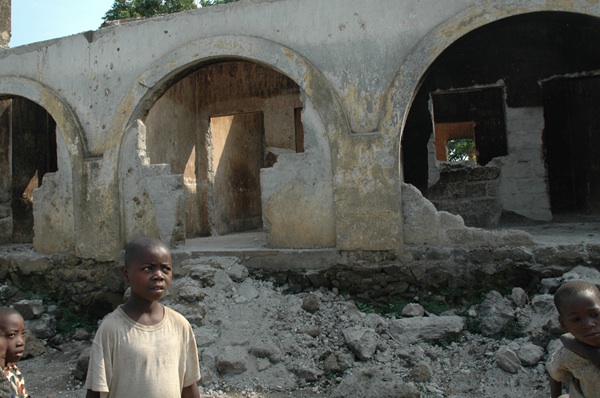 The Democratic Republic of Congo once again finds itself embattled in a deep and violent conflict, continuing to have a deep and lasting impact on the countries children. The past two days have seen continual fighting in the east of the country, and fears of ensued violence continue to rise.
The Democratic Republic of Congo once again finds itself embattled in a deep and violent conflict, continuing to have a deep and lasting impact on the countries children. The past two days have seen continual fighting in the east of the country, and fears of ensued violence continue to rise.
In recent weeks the conflict in the east of the country has boiled over, leaving a number of refugee camps have been burned, and countless civilians displaced. Children continue to be the innocent victims of the wars blinding violence, leaving many wounded or dead in the crossfire. Children are also the hardest hit by the wars off springing hunger and disease.
Children have been recruited as combatants in all of the Congo's conflicts, with an estimated 30,000 enlisted at the height of the war. While the number of child soldiers has significantly dropped in recent years to an estimated 3,000-6,000, fears that their recruitment has been on the increase in recent months appears to be holding weight, as UN sources have already reported that an estimated 37 children have been recruited since the recent outbreak of violence began.
The Congo has also been a continual hotbed for sexual violence and rape of women and girls, to an extent that is seen as possibly the worst place in the world for the level of this extreme form of violence. The use of rape as a weapon of war is the most detrimental forms of violence that can be placed on any human being. In the last month there were over 2,000 rape cases on record last month in the North Kivu province alone.
 Tensions in the Congo have never really faded from its previous wars, much of which is ethnic tensions remaining from the Rwandan genocide 1994, when millions of Hutus fled into the Congo. The First Congolese War in 1996-1997, was quickly followed by a second Congolese War in 1998-2003, which left the country devastated. The second war in the Congo has often been referred to as the “African World War”, due to the direct involvement of armies from 8 countries, including; Zimbabwe, Angola, Chad, Sudan, Namibia, Uganda, Rwanda and Burundi, as well as some 25 rebel groups.
Tensions in the Congo have never really faded from its previous wars, much of which is ethnic tensions remaining from the Rwandan genocide 1994, when millions of Hutus fled into the Congo. The First Congolese War in 1996-1997, was quickly followed by a second Congolese War in 1998-2003, which left the country devastated. The second war in the Congo has often been referred to as the “African World War”, due to the direct involvement of armies from 8 countries, including; Zimbabwe, Angola, Chad, Sudan, Namibia, Uganda, Rwanda and Burundi, as well as some 25 rebel groups.
In the beginning of 2003 peace accords where signed, however fighting in the eastern part of the Congo never came to an end. Tensions have risen in recent months as rebel leader, Laurent Nkunda, an ethnic Tutsi, who's forces signed a peace agreement on January 23, 2008, which issued an immediate cease-fire. The cease fire was followed by the pullback of combatants in areas set to be a U.N. buffer zone. However the agreement held little weight as it was put into action and quickly the set pullback of forces quickly became chaotic and violence once again found its place.
The Congolese war has seen the over 6 million deaths (5.4 at the time of the report) deaths, at the rate of some 45,000 deaths each month, more than any other conflict since WWII according to a report by the International Rescue Committee (IRC), earlier this year. Many now fear the current outbreak of violence will only deepen into another multi-national conflict.
What is the future for the children of the Congo? The harsh reality is that the future outlook continues to be one of violence, hunger, displacement and disease. However one can hope that the upcoming peace conferences will establish a working peace agreement and ceasefire, which will allow the country some solid building blocks for a sustainable peace in the future.

Ban Ki-moon, the UN secretary-general, is working to make his way to the Congo to aid in the peace process; he has also appointed former Nigerian president, Olusegun Obasanjo, to work with the African Union (AU) to establish a peace agreement between the Congolese government, Tutsi rebels, and the Rwandan government. A peace summit is to be held this Friday in Kenya with the presidents of DR Congo, Rwanda, Uganda, Burundi, as well as representatives from the UN and AU.
For more information please see previous posts on the Congo here